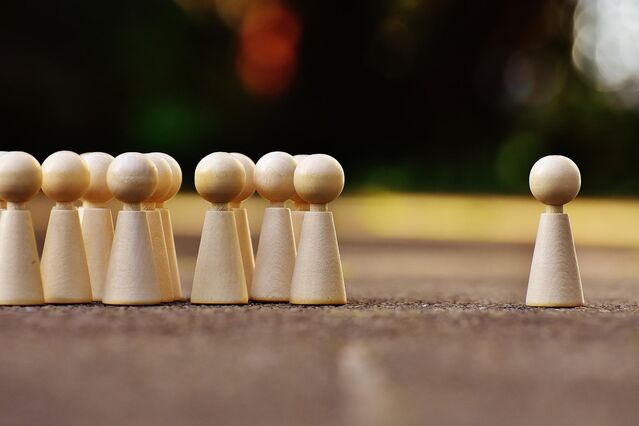Bullying
Reencountering My High School Bully
A Personal Perspective: Many who are bullied carry their scars into adulthood.
Posted April 24, 2022 Reviewed by Abigail Fagan

I had an experience that most could only dream of: I ran into my high school bully. I had just finished my first quarter of medical school, and I decided to treat my parents to a nice restaurant in my hometown. When our server came by to give us our menu, I immediately recognized who he was.
My bully had been one of the popular kids in high school. He had been elected to the student council, threw alcohol-fueled parties for underage classmates, and bedeviled teachers by causing disruptions in class. I was the stereotypical nerd with thick glasses and metal braces. They whispered snide comments behind my back during class, as they did with many others not in their clique, and I did my best to avoid them.
One day, a friend of the bully asked me out on a date during a lull in class. I noticed the bully and his other friends snickering in the background. I responded by loudly turning my faux-suitor down, giving him a public verbal lashing—one that I hoped he would cringe at for decades to come. After that incident, the bully and his friends largely left me alone. It was harder to bully someone who could fight back.
And now, years later, my bully was taking my order. This was a moment that my high school self had dreamed of, where I could gloat about my academic and professional successes. But, in the end, I felt bad for both of us. My bully had not been book-smart, but he was ambitious and, at the time, seemed like a natural leader. I doubted this was where he had imagined himself after graduation, and I realized there was no joy in proving him wrong. A life well-lived was the best revenge, but there was no satisfaction in this meeting, only awkwardness.
My former bully had also recognized me. We talked as if there had never been any bad blood between us, chit-chatting about what we had been up to recently. I talked about medical school, and he talked about his recent travels. He then left with our orders. His shift was ending, and a different server had replaced him by the end of our dinner. I wondered whether he remembered that he had made my school life more difficult than it had to be.
In high school, I turned my experiences into motivation to study hard to escape my hometown. I had hoped that my college classmates would be intelligent and cultured individuals who would respect my academic skills and niche interests, which is precisely what happened. And although I had done pretty well for myself, I still carried the scars from high school. I could dress up my wounds and call them a blessing in disguise, but I knew that at the time, my teenage self lived in a constant state of social anxiety. Plus, not every victim of bullying has a positive ending.
According to the National Institute of Child and Health Development, children who are bullied are more likely to have problems with substance use, academic performance, and interpersonal violence later in life. Their trauma prevents them from developing the skills they need to make healthy decisions.
And I feel that it's tougher to be a teenager than ever before. When I was in high school, social media and, by extension, cyberbullying were a relatively new phenomenon, and school bullying could only occur while you were actually at school. However, nowadays, with social media, online forums, and messaging apps, bullying can happen 24/7 and is more easily hidden from authority figures like teachers and parents. I could also imagine that it is easier to dehumanize somebody behind the screen than to bully someone standing directly in front of you, where they have a chance of fighting back.
The teenage years are awkward times when we begin to realize our role in our social circles and communities. Some try to clarify their position by putting others down. Some grow out of their behavior; some carry their abusiveness into adulthood. As for the bullied, our scars stay with us, evident by the fact that I'm writing about my high school bully more than a decade after graduating. It's human nature to measure our progress by comparing our youthful aspirations to how much we've grown or fallen. For both the former bullies and the formerly bullied, I hope we can all grow into individuals that our younger selves would be proud to become.


